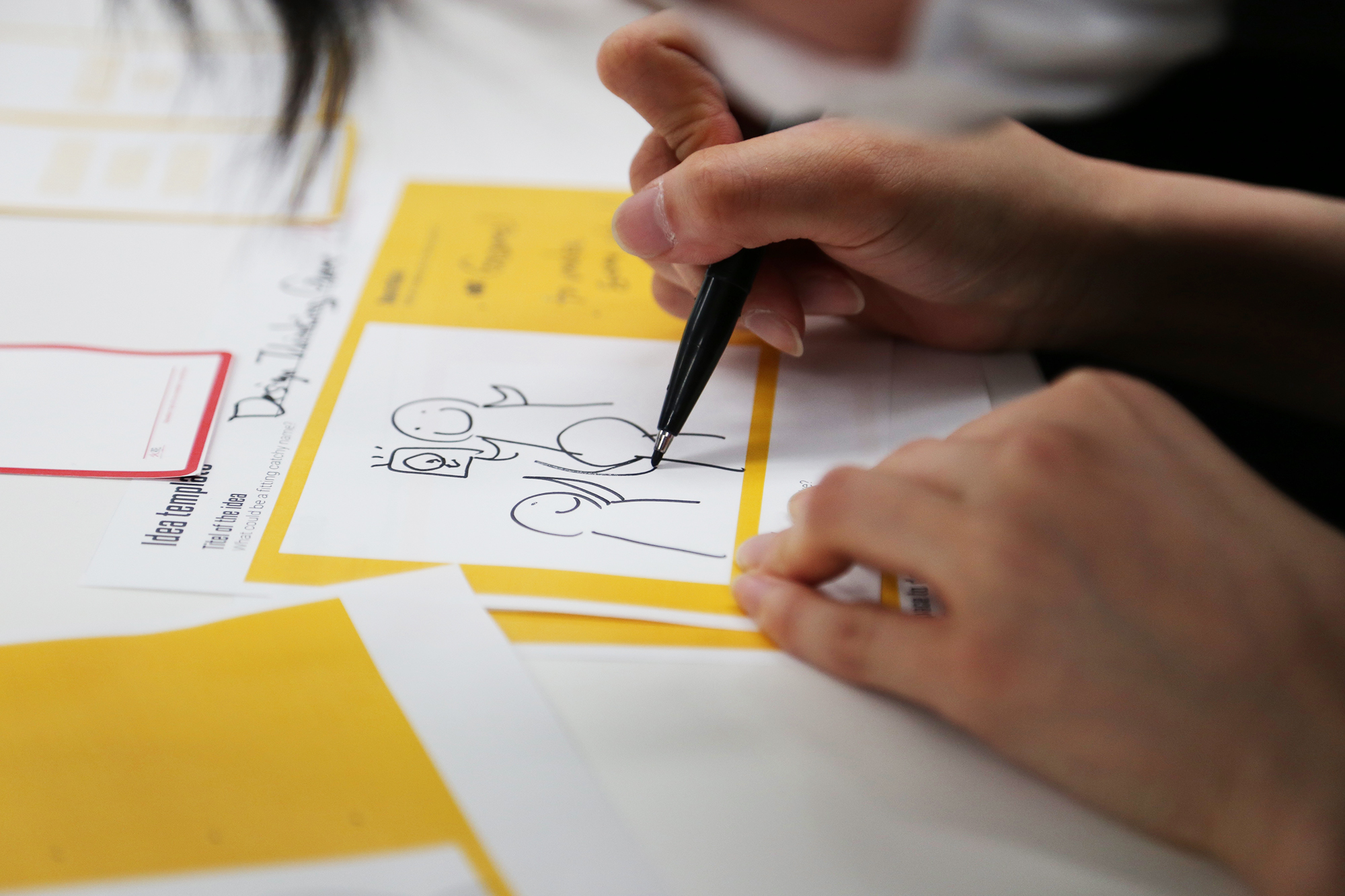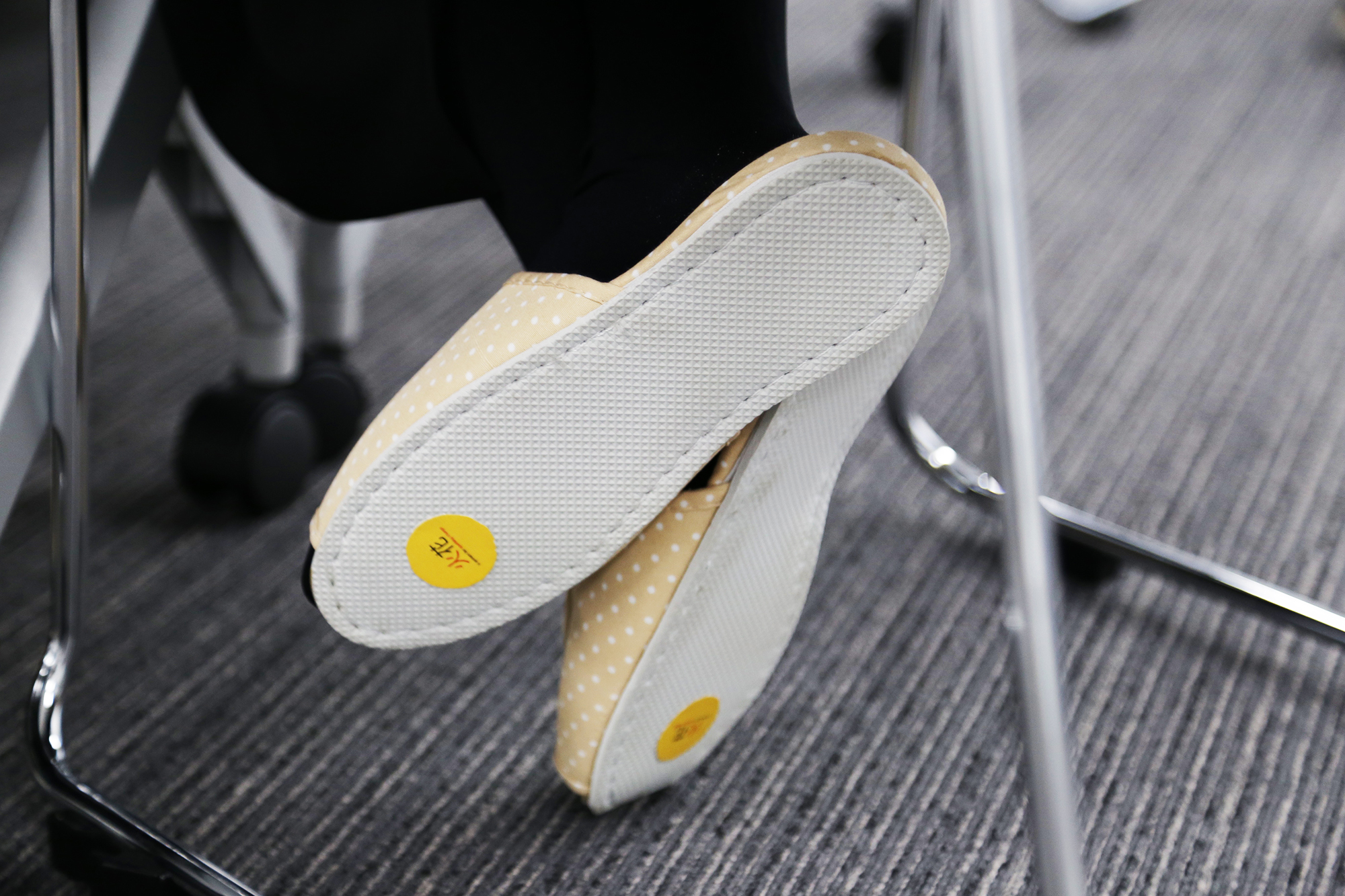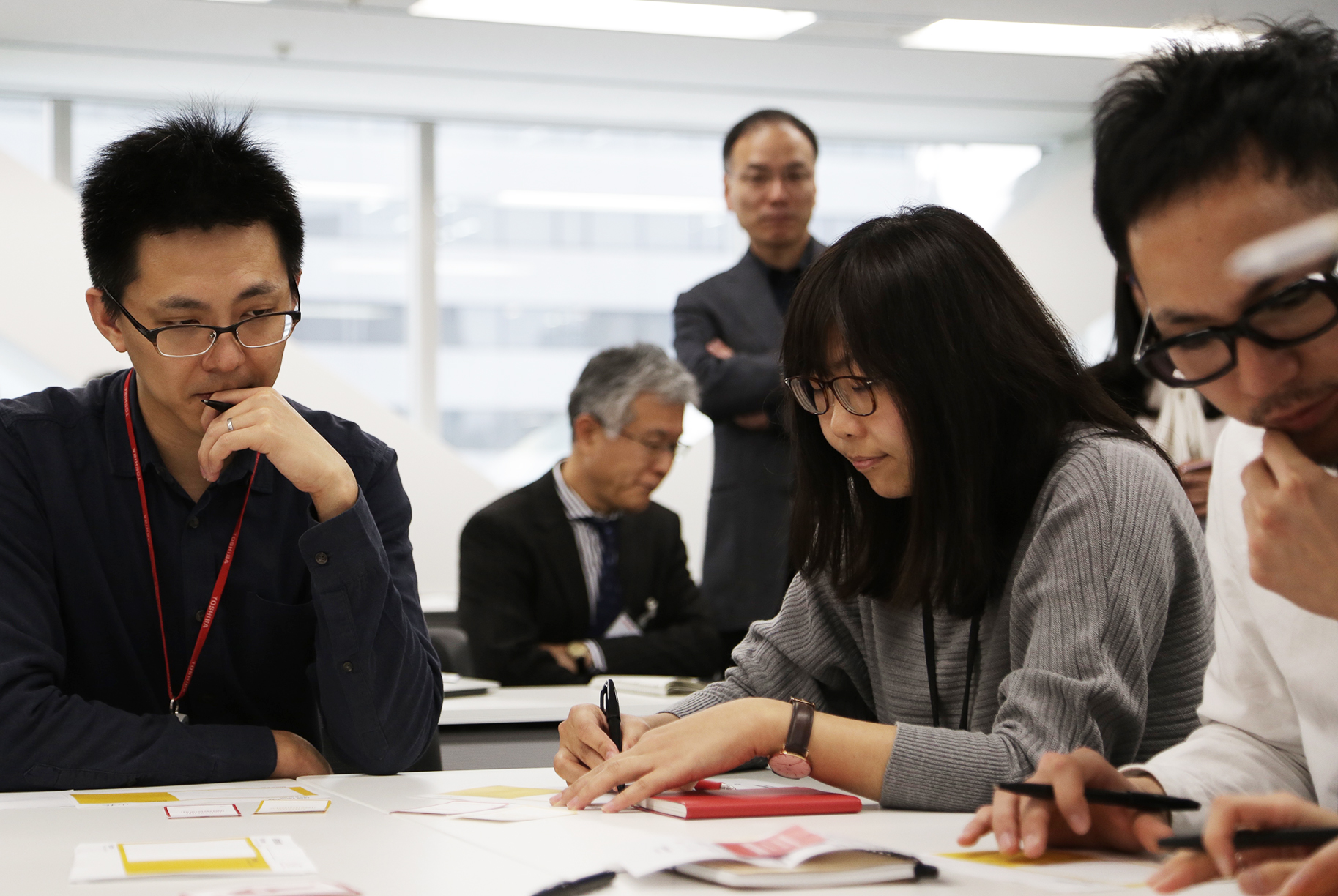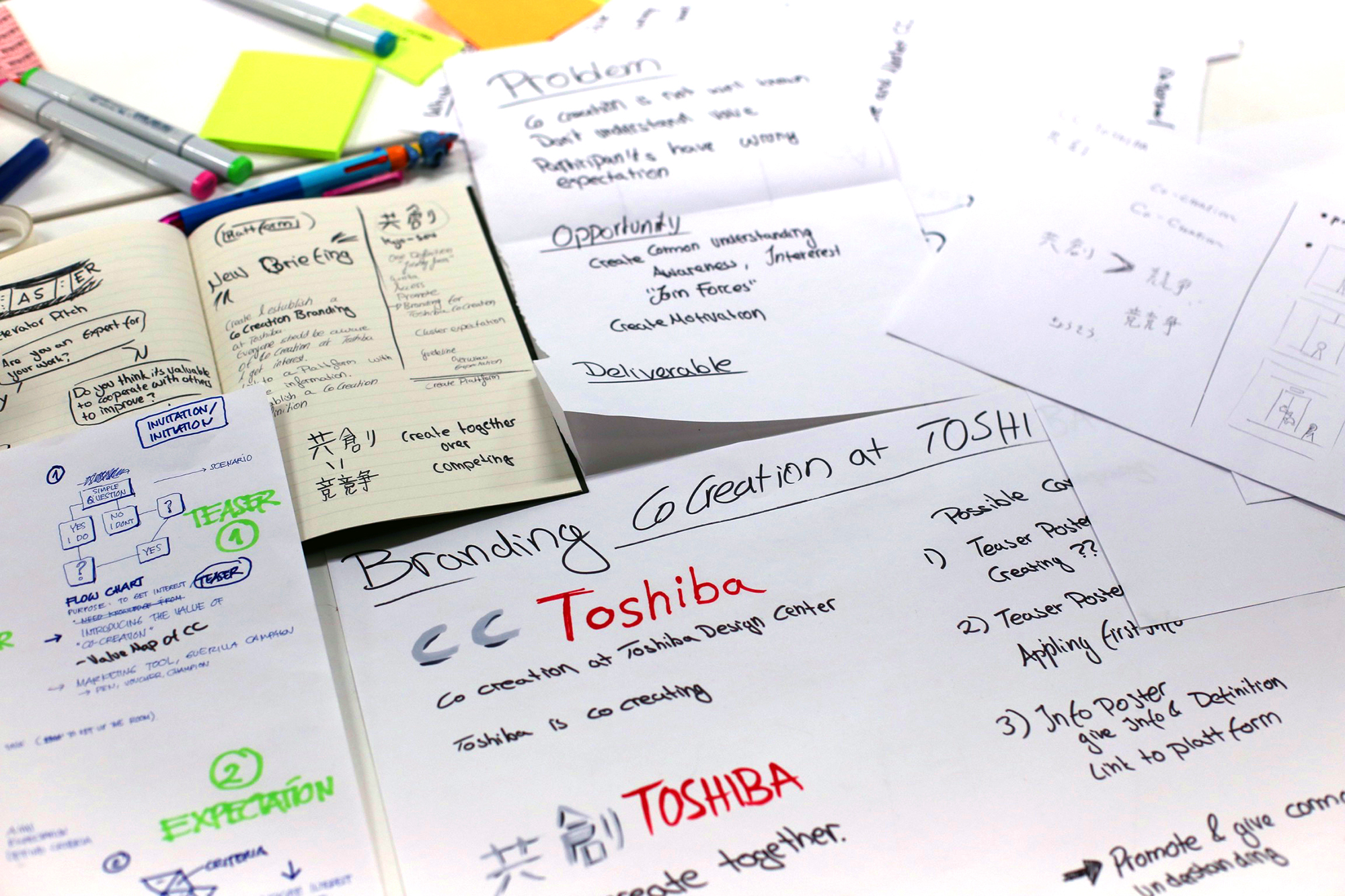Innovating Co-Creation x Toshiba
Increasing the value of collaborative formats.
Increasing the value of collaborative formats.

Toshiba is a worldwide acknowledged corporation and striving for innovation in technological development ever since. Since the discipline of Service Design raised and Co-Creation had been implemented successfully into organizational structures of major competitors, Toshiba started to apply it as well. But as it is cost- and time-intensive, the top management could not see its value for the company. As a result, the Toshiba Design Center invited the Service Design departments from Chiba University and the Köln International School of Design to Tokyo to spend two weeks exploring the question how to increase the value of co-creation within the company: the main focus of the co-operation was the design of a new workshop format for the company itself.

To explore how Co-Creation is perceived and conducted at the moment at Toshiba, we conducted individual interviews with Toshiba designers, employees and managers and spread a written questionnaire about Co-Creation among two departments. The evaluation revealed that Toshiba is facing different challenges regarding the implementation of Co-Creation: Silo-Structures between several Toshiba businesses, no common understanding of Co-Creation at Toshiba beyond the Design Center and a company mentality that focuses measurable success prevent Co-Creation from being conducted successfully.
To implement this holistically we developed a comprehensive concept in three groups, which also included the important phases of pre- and post-processing of co-creation workshops at Toshiba: “Hibana - A system forsparking change.” A guerrilla marketing campaign aims to raise awarenessand knowledge about co-creation and itsand its value among employees. Workshop tools specially developed for Toshiba help to solve the individual challenges within the workshops. A co-creation platform encourages and facilitates exchange, connects the right people and provides information and tools. Overall, initiative and participation are encouraged on all levels of the company.
When developing the workshop structure and -tools itself we focused on the different problematic fields that were discovered in the research: different expectations of the workshop, a lack of space for experiments, strict hierarchies that are also culturally anchored, and the difficulty of communicating new methods to employees. Within the workshop format we designed, it is possible to take risks, participate free of responsibility and judgment and exchange ideas on an eye level. The tools developed were targeted towards a one-hour workshop that was facilitated by a fellow student and me.
To implement this holistically we developed a comprehensive concept in three groups, which also included the important phases of pre- and post-processing of co-creation workshops at Toshiba: “Hibana - A system forsparking change.” A guerrilla marketing campaign aims to raise awarenessand knowledge about co-creation and itsand its value among employees. Workshop tools specially developed for Toshiba help to solve the individual challenges within the workshops. A co-creation platform encourages and facilitates exchange, connects the right people and provides information and tools. Overall, initiative and participation are encouraged on all levels of the company.
When developing the workshop structure and -tools itself we focused on the different problematic fields that were discovered in the research: different expectations of the workshop, a lack of space for experiments, strict hierarchies that are also culturally anchored, and the difficulty of communicating new methods to employees. Within the workshop format we designed, it is possible to take risks, participate free of responsibility and judgment and exchange ideas on an eye level. The tools developed were targeted towards a one-hour workshop that was facilitated by a fellow student and me.







Tokyo, 2016
It was an honour to co-create with the open-minded teams at the Toshiba Design Center!
Thank you to ChibaU for their incredible hospitality.